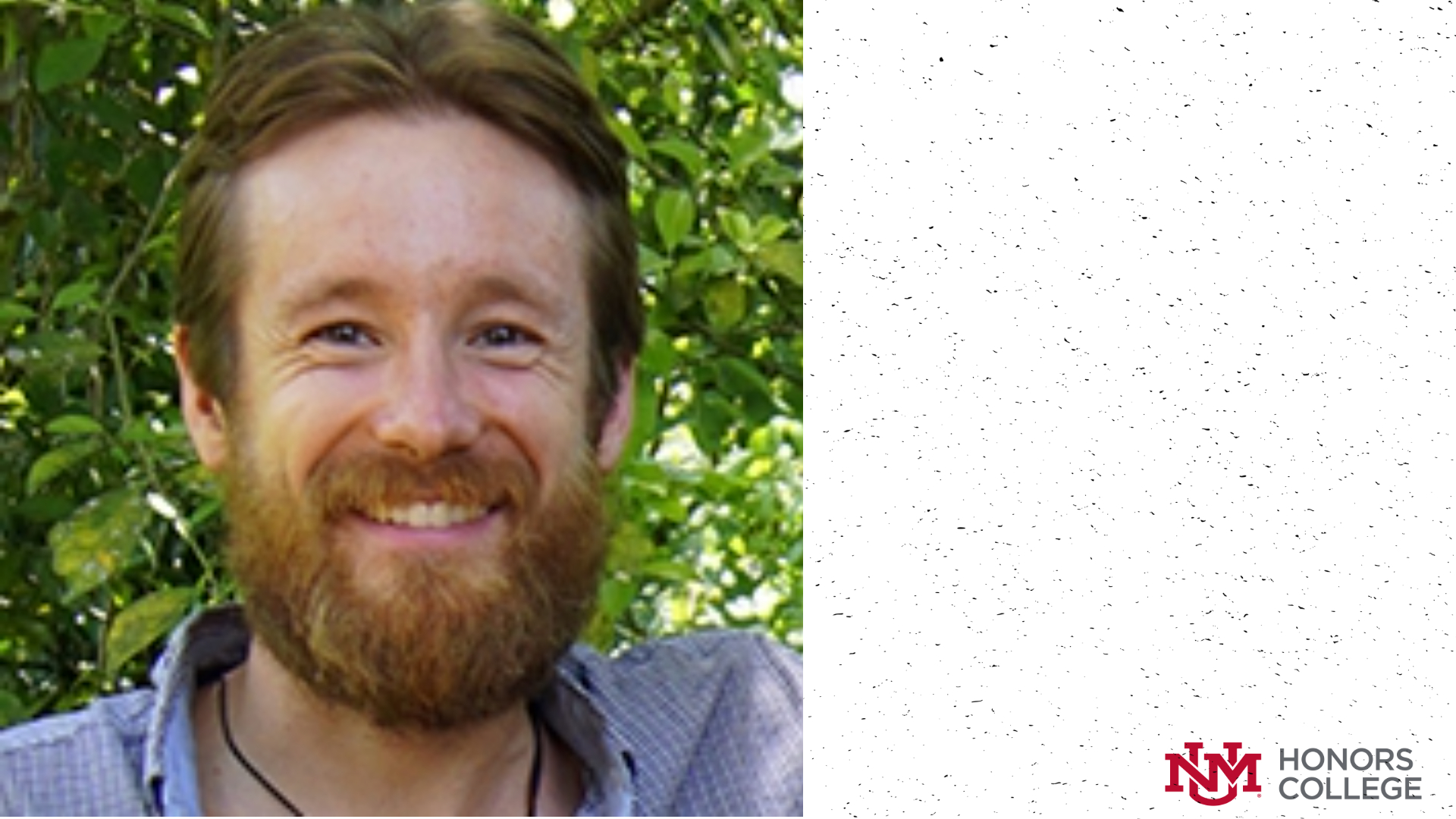Nurturing Curiosity and Connection: Professor Falkowski’s Impact on Honors Students
April 8, 2025 - Anna Abeyta

Professor Tomasz Falkowski’s journey from bioengineering to environmental science is a testament to the power of exploration and transformation. His academic path began with a degree in bioengineering, but it wasn’t long before he realized that he preferred getting dirty outside to pipetting in a wet lab. This realization led him to pursue a master’s degree in environmental resources engineering, followed by a doctorate in environmental forest biology. His diverse academic background allowed him to merge his scientific training with a deep-rooted desire to better understand and protect the environment. “My parents always encouraged me to pursue my love of learning and apply it to help others” Falkowski states.
One of the pivotal moments of his academic career occurred in the rainforests of Chiapas, Mexico, where he worked alongside Maya farmers. There, Falkowski discovered how traditional ecological knowledge played a crucial role in restoring soil fertility and regenerating vegetation. The experience profoundly shaped his view of the human-nature relationship, teaching him that humans can structure their interactions with the environment in a way that is mutually enriching. It was through this work that Falkowski realized the importance of not just preserving natural ecosystems but reimagining how humans engage with them in a way that benefits both the planet and its inhabitants.
After completing his postdoctoral fellowship, Falkowski moved to New Mexico, where his focus shifted to studying the unique socioecological systems of the region. He became involved in post-fire restoration projects in northern New Mexico, where he worked to understand how local communities were adapting to both biophysical and socioeconomic changes. This work allowed him to gain insight into the intricate ways that human communities and natural systems interact, often in unexpected and complex ways.
Professor Falkowski’s work eventually brought him to the University of New Mexico’s Honors College, where he now teaches and mentors students. His unique blend of scientific expertise and fieldwork experience has allowed him to engage students in a way that breaks traditional academic boundaries. Falkowski takes great pride in his role as a teacher, especially when it comes to helping students develop creativity and critical thinking skills. He enjoys introducing them to new ways of thinking and encourages them to step outside their disciplinary silos to embrace fresh perspectives.
“It’s particularly exciting to help break them out of their disciplinary silos to introduce them to new ways of thinking they may not have encountered before,” Falkowski says. “ In my role as an instructor, I have the rewarding opportunity to assist them as they metabolize their discomfort, uncertainty, and confusion into insight, confidence, and possibility.”His approach is not about simply passing on knowledge but helping students navigate the uncertainties and discomforts that often accompany growth.
For Falkowski, teaching goes beyond lectures and discussions; it’s about creating experiences that allow students to connect with the natural world." ...perhaps the moment that most clearly emerges from the fog of my memory is walking with students among the cottonwoods in the Valle del Oro National Wildlife Refuge and watching long V-shaped formations of sandhill cranes glide down across the pastel sunset sky to dance in the shallows of the Rio Grande. We returned to the parking lot in the twilight, and as the students’ laughter joined the cranes’ glissando calls, I was so grateful to be reminded that we are all in this together.”
Victor Nyachwaya, one of Falkowski’s students, nominated him for recognition due to the lasting impact he had on him. “He is a dedicated professor who inspired me to want to know more about the wilderness after taking his Legacy of Wilderness class,” Nyachwaya shared. “He’s understanding, kind, and engaging.” These qualities are not just reflected in his teaching style, but in the way Falkowski approaches mentorship. His dedication to students is evident in the care he takes to nurture their academic growth while fostering a deep respect for the natural world.
Professor Falkowski’s work is a testament to the idea that education should be more than just the transmission of facts—it should be a transformative process that encourages students to think critically, embrace uncertainty, and engage with the world around them in meaningful ways. His ability to bring his experiences in the field into the classroom, paired with his passion for environmental stewardship, has inspired countless students to think differently about the natural world and their place within it.
